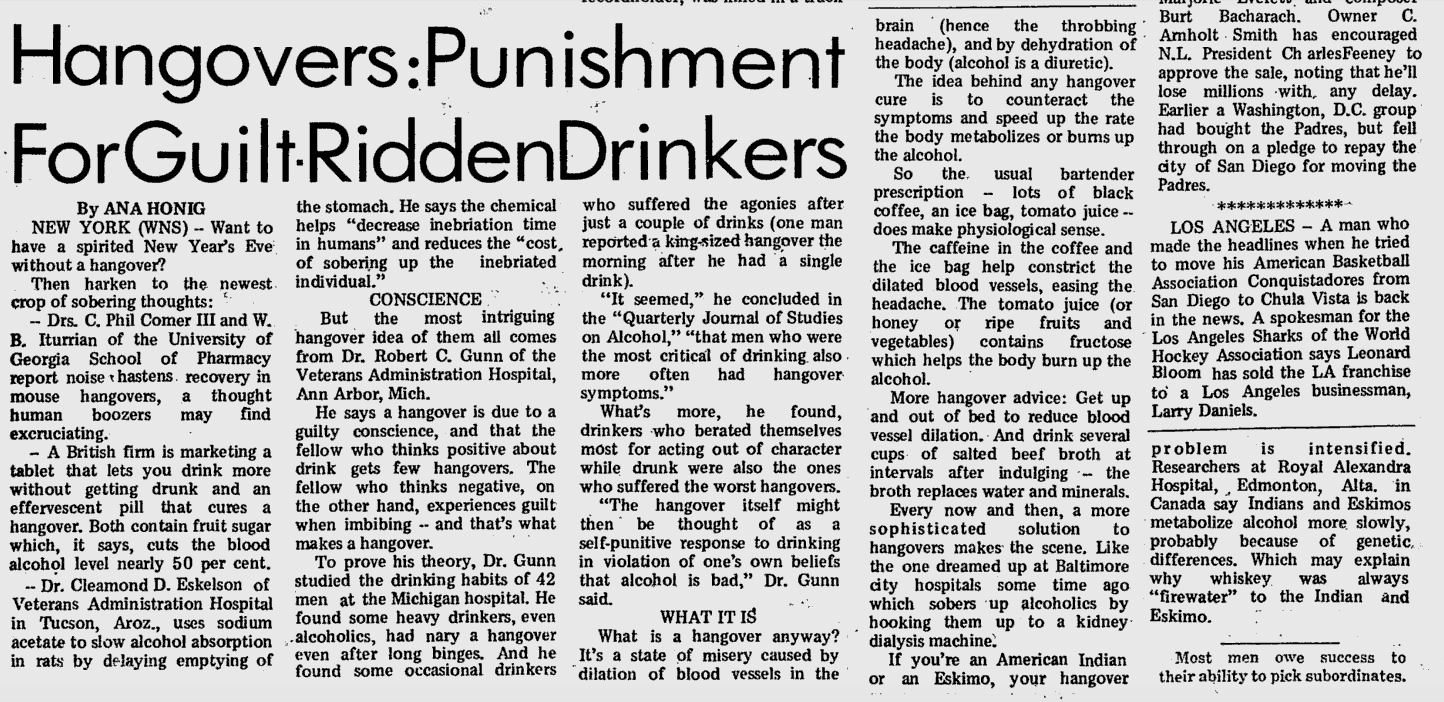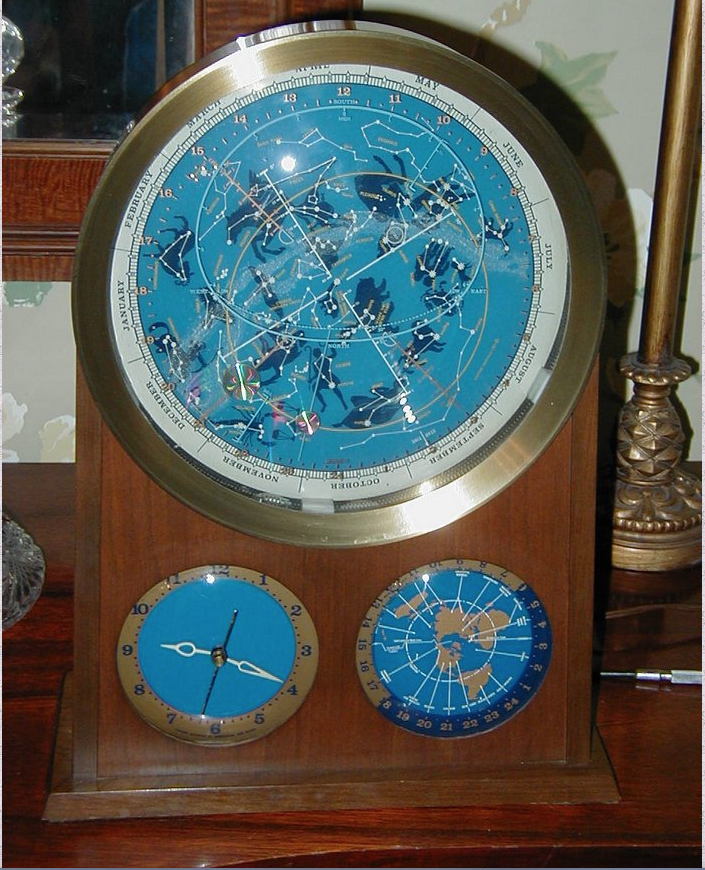Science
Isostatic Rebound Golf Course
The Valley of the Eagles golf course in the small town of Haines, Alaska boasts an unusual feature. It’s currently a nine-hole course, but due to the geological phenomenon of isostatic (or post-glacial) rebound, in a few decades it may be an 18-hole course.Post-glacial rebound is the phenomenon of a land mass rising after the weight of a glacier has been removed from it. This is occurring in Haines, at a rate of about 0.9 inches per year, and because the golf course borders the water, it's steadily growing in size as it rises above sea level, exposing more land. The course has already doubled in size since the 1960s.
More info: pasturegolf.com
Posted By: Alex - Fri Aug 02, 2019 -
Comments (2)
Category: Science, Sports, Golf, Natural Wonders
Psychedelic Apes - the book
Please excuse the self-promotion, though hopefully the subject matter may be of interest to WUvies. For the past two years I've been busy researching and writing another book, and it finally went on sale last week, published by Macmillan. I give you Psychedelic Apes: From parallel universes to atomic dinosaurs – the weirdest theories of science and history.
The book is an exploration of some of the craziest ideas that lurk at the fringes of both science and history. While I don't endorse these ideas, I didn't exactly set out to debunk them either. After all, I have a very high tolerance for, and fascination with, weirdness. Mostly I wanted to understand what the case was for each of them, and why some seemingly intelligent, knowledgeable researchers (quite a few of them leaders in their fields) not only convinced themselves that these ideas could be true, but in many cases passionately defended them — sometimes at great cost to their careers and reputations.
I also wanted to keep an open mind because the history of science is, to a great degree, a history of ideas that were initially dismissed by scholars as being totally nuts (such as heliocentrism, evolution, continental drift, etc.) eventually being accepted as true. But yes, I do explain why the majority of scholars reject the hypotheses I examine in the book.
The chapter list:
- What if the Big Bang never happened?
- What if our universe is actually a computer simulation?
- What if there’s only one electron in the universe?
- What if we’re living inside a black hole?
- What if we live forever?
- What if the Earth is at the centre of the universe?
- What if planets can explode?
- What if our solar system has two suns?
- What if ten million comets hit the Earth every year?
- What if the Earth is expanding?
- What if everything is conscious?
- What if diseases come from space?
- What if the Earth contains an inexhaustible supply of oil and gas?
- What if alien life exists on Earth?
- What if we’ve already found extraterrestrial life?
- What if the dinosaurs died in a nuclear war?
- What if our ancestors were aquatic apes?
- What if we’re descended from a pig–chimp hybrid?
- What if hallucinogenic drugs made us human?
- What if humanity is getting dumber?
- What if ancient humans were directed by hallucinations?
- What if Homer was a woman?
- What if Jesus was a mushroom?
- What if Jesus was Julius Caesar?
- What if the Early Middle Ages never happened?
The topics progress from cosmological questions about the origin and nature of the universe, up through the origin of life and our species, and ends with the dawn of the modern era. So in addition to being a catalog of "against-the-mainstream" ideas, the book offers a kind of alternative history of the cosmos. In the following weeks, I'll post fuller descriptions of some of these topics.
Unfortunately, the book is currently only on sale in the UK and (I believe) Australia. For whatever reason, the Brits have been much more receptive to my books than Americans have been. I have no idea if, or when, an American edition will be coming out. But an audio edition should be available soon. Some places it can be purchased online:
Amazon UK
W.H. Smith
Waterstones
If you're a blogger interested in obtaining a review copy, drop me a line. I may be able to arrange that. Though I can't make any promises.
Posted By: Alex - Thu Aug 01, 2019 -
Comments (6)
Category: Science, Books, Alex
The Handy Dandy Evolution Refuter
Read online here.
Posted By: Paul - Sun Jul 14, 2019 -
Comments (4)
Category: Animals, Dinosaurs and Other Extinct Creatures, Antiques, Anachronisms and Throwbacks, Authorities and Experts, Eccentrics, Conspiracy Theories and Theorists, Curmudgeons and Contrarianism, Science, 1970s
Decapitation Experiment
Weird science: How long does a severed head remain conscious? In 1905, Dr Gabriel Beaurieux used the opportunity of the execution of the criminal Henri Languille by guillotine to attempt to find out. From a contemporary newspaper account of the scene:"Languille! Languille!"
Terrible stillness for a moment. And, look! The dead head actually obeys! The eyelids open, and two eyes, abundant with life, glare questioning at Dr. Beaurieux—and then the lids close.
But the doctor has no mercy—he is experimenting. And once more he commands:
"Languille!"
Again the eyelids open, and two soulless eyes attempt to see, to find a point in the space. A conscious struggle really is proceeding, until the lids again close. But for the third time Dr. Beaurieux raises the head up in the air:
"Languille!"
This time in vain. The experiment had lasted thirty seconds, and now the question is:
Has the reflecting movement released other functions of the brain? Did Languille know that they called him, and that he had better awaken and answer? Gruesome it were, if he really had answered, for instance repeated his "Goodbye, you beautiful life!"

The execution of Henri Languille - source: wikipedia

The Racine Journal Times - Aug 23, 1905
Posted By: Alex - Thu May 16, 2019 -
Comments (5)
Category: Death, Science, Experiments, 1900s
Hangovers Due to Guilty Conscience
In 1973, Professor Robert Gunn advanced this theory.
Twenty years later, he was still pursuing the idea, as you can see in the scientific paper at the link.
To reappraise a prior study of hangover signs and psychosocial factors among a sample of current drinkers, we excluded a subgroup termed Sobers, who report "never" being "tipsy, high or drunk." The non-sober current drinkers then formed the sample for this report (N = 1104). About 23% of this group reported no hangover signs regardless of their intake level or gender, and the rest showed no sex differences for any of 8 hangover signs reported. Using multiple regression, including ethanol, age and weight, it was found that psychosocial variables contributed independently in predicting to hangover for both men and women in this order: (1) guilt about drinking; (2) neuroticism; (3) angry or (4) depressed when high/drunk and (5) negative life events. For men only, ethanol intake was also significant; for women only, being younger and reporting first being high/drunk at a relatively earlier age were also predictors of the Hangover Sign Index (HSI). These multiple predictors accounted for 5-10 times more of the hangover variance than alcohol use alone: for men, R = 0.43, R2 = 19%; and for women, R = 0.46, R2 = 21%. The findings suggest that hangover signs are a function of age, sex, ethanol level and psychosocial factors.
Posted By: Paul - Sun Feb 10, 2019 -
Comments (1)
Category: Science, Experiments, Psychology, 1970s, 1990s, Pain, Self-inflicted and Otherwise, Alcohol
Discerning pig screams
Perhaps it's hard to tell whether it's the pigs or the humans screaming...
Source
Posted By: Alex - Tue Dec 18, 2018 -
Comments (2)
Category: Animals, Science
Strange Frequencies
Add this item to your Xmas list and you won't be disappointed!From the intro:

Posted By: Paul - Thu Oct 25, 2018 -
Comments (0)
Category: Science, Supernatural, Occult, Paranormal, Books
The Spilhaus Space Clock
This clock gives info on 19 different variables.For complete info, visit here.
The inventor's Wikipedia entry.

Posted By: Paul - Wed Oct 24, 2018 -
Comments (0)
Category: Nature, Science, Technology, 1960s, 1970s
Mystery Gadget 67

What's going on here?
The answer is at the link.
Or after the jump.
More in extended >>
Posted By: Paul - Wed Oct 17, 2018 -
Comments (5)
Category: Science, 1920s
The smell of dead rabbits
Weird science: Spanish researchers have determined that rabbits can differentiate between the poop of predators that have eaten rabbits and those that haven't. From New Scientist:There were fewer pellets in the plots sprayed with rabbit-based scat odour than in those sprayed with the beef-based scat odour, suggesting the rabbits were avoiding places where it appeared other rabbits were being eaten.
I assume this means that some researcher had to search around in a field every day to count rabbit pellets.
The journal article: Acta Ethologica
Posted By: Alex - Sat Oct 13, 2018 -
Comments (3)
Category: Animals, Science, Excrement

| Who We Are |
|---|
| Alex Boese Alex is the creator and curator of the Museum of Hoaxes. He's also the author of various weird, non-fiction, science-themed books such as Elephants on Acid and Psychedelic Apes. Paul Di Filippo Paul has been paid to put weird ideas into fictional form for over thirty years, in his career as a noted science fiction writer. He has recently begun blogging on many curious topics with three fellow writers at The Inferior 4+1. Contact Us |




